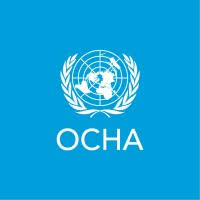- Details
- East Africa
- 532
GEDAREF STATE, SUDAN – “Every woman and girl here is at risk, no matter her age or background. No one is safe,” said Khadija*, a midwife at a maternity clinic in Sudan’s eastern Gedaref State.
“Sexual violence has become as widespread [a weapon] as guns and bullets. Women arrive at our facilities exhausted, traumatized, often after months of displacement,” she told UNFPA, the United Nations sexual and reproductive health agency, which supports the clinic. “They are carrying physical and emotional wounds that are difficult to comprehend.”
Now in its third year, the war in Sudan has unleashed a relentless assault on the bodies and rights of women and girls. Across areas affected by the conflict, sexual violence is used as a weapon of war, a targeted tactic to instill terror, enforce displacement and exert control. More than 12 million people – one quarter of the population – are at risk of gender-based violence, with frontline responders and survivors reporting alarming rates of rape, abuse, coercion and child marriage.
“The scale and brutality of violations are beyond anything we’ve previously seen,” explained Dina*, a gender-based violence specialist in Sudan. “We have documented numerous cases of women and girls who have survived rape and sexual violence, including adolescent girls and women and girls with disabilities. Many are left coping with unwanted pregnancies, sexually transmitted infections, and deep psychological trauma.”
Even at these levels, sexual violence often goes underreported, mainly out of fear, shame, inadequate services, and little chance of prosecution for the perpetrators.
“It will take decades to recover from this,” continued Dina. “Yet the survivors we work with are still fighting to survive, to raise their voices, and to access justice.”
Generational trauma
Adding to the trauma are sweeping funding cuts that have shuttered life-saving services across Sudan. UNFPA is currently supporting 63 safe spaces that provide shelter, psychosocial support and referrals for medical care for survivors of gender-based violence, but many of these have been forced to close in the last few months. Across the county, only around one in four facilities that offer clinical management of rape are fully functional.
Emerging reports indicate that serious maternal health risks among rape survivors may be on the rise. Repeatedly displaced, women and girls undertake dangerous journeys through war-torn areas, with scarce access to sexual and reproductive health services or support – some for months on end. By the time they reach a health facility, many survivors are in advanced stages of pregnancy, or battling severe, untreated infections and profound psychological trauma.
“The violence we’re witnessing now will echo through generations,” said Dina. “Children born from these assaults, mothers forced into unwanted pregnancies, survivors stigmatized and ostracized by their communities — all of this trauma will profoundly impact the fabric of Sudanese society long after the guns fall silent.”
Accessing healthcare and mental health support is only one part of the struggle for survivors. UNFPA partners report that stigma and fear of reprisals – including survivors being killed by family members – are preventing women and girls from seeking help.
Dwindling funds, and hope
UNFPA and partners continue to deliver reproductive health and protection services, but recent funding cuts have forced UNFPA to withdraw from more than half of the 93 health facilities it was supporting. As its humanitarian appeal in 2025 is only one quarter funded, many safe spaces and programmes supporting women and girls in the most treacherous situations will have to close.
“At this point, it truly feels like this war is being fought on the bodies of women and girls,” said Huda*, a survivor of sexual violence who sought care at a UNFPA-supported facility. “What’s happening to us is beyond what most people can imagine. So many of us have lost hope in the future.”
UNFPA Executive Director Dr. Natalia Kanem said, “It is time to work together, with the urgency required, to make the elimination of sexual violence in conflict not an afterthought but the very first step towards a world of peace – a world that is safe, just and equal for women and girls – and for everyone.”
UNFPA is calling for greater resources and attention for some of the least-supported crises across the world, including in Sudan. It is crucial not to let the lights go out for millions of women and girls, by fully funding survivor-centred services to break the cycle, heal the scars for sexual and reproductive health and safe spaces for healing from and reporting on these crimes. *Names changed for privacy and protection. OCHA






